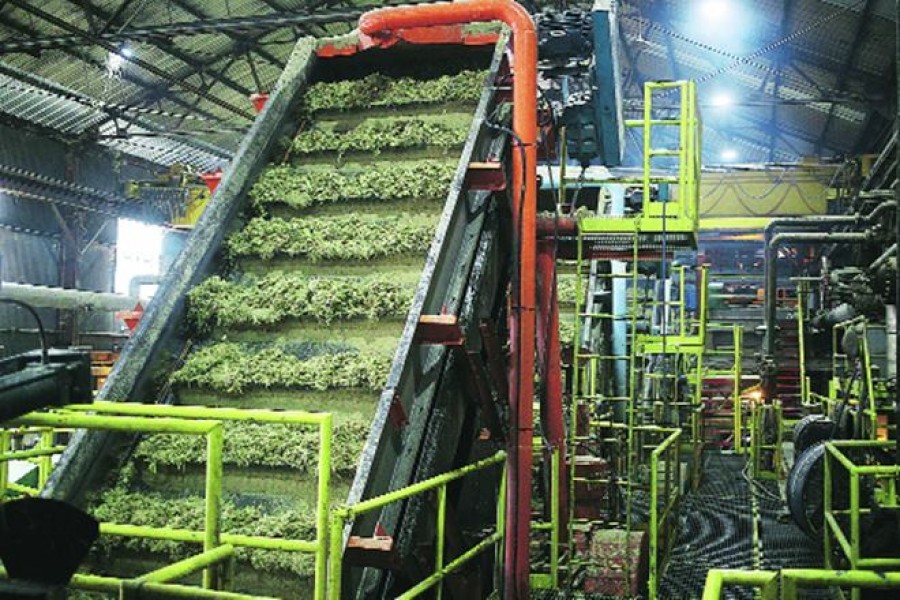Uncertainty eclipses modernisation of the public sugar mills as the process of replacing the outworn machinery with modern ones has stalled for several months, officials said.
Officials in Bangladesh Sugar and Food Industries Corporation (BSFIC) and the Ministry of Industries (MoI), in fact, have little idea about the fate of the upgrading plan of the struggling corporation.
Following a government instruction, the BSFIC stopped production in six of the 15 state-owned mills -- Pabna Sugar in Iswardi, Shyampur Sugar in Rangpur, Panchagarh Sugar and Setabganj Sugar in Dinajpur, Rangpur Sugar, and Kushtia Sugar -- in December last year for an indefinite period.
The mills' closure came after the corporation discovered that the sugar-producing units had suffered around Tk 8.0-billion losses on average per year since 2015-16 till 2019-20 against sugar crushing.
Over the last five years, the BSFIC losses had accumulated into nearly Tk 40 billion. Higher production costs because of the decades-old production bases were mainly blamed for the poor performances of the mills.
Even before the closure, the government had been looking for potential global investors to install state-of-the-art mills there but got a lukewarm response.
As part of the modernisation move in 2019, the BSFIC management signed a MoU with a consortium of three firms from Thailand, the United Arab Emirates (UAE) and Japan to assess the feasibility of building modern mills.
In accordance with the report, the consortium proposed to set up three modern sugar mills with provisions for producing sugar and its byproducts.
When contacted, BSFIC chairman Arifur Rahman Apu suggested communicating with the planning department chief of the corporation over the matter.
BSFIC director (planning and development) Md. Anwarul Alam said there is no official development about the move. "I have nothing to share. But we're trying our best to make it happen."
Seeking anonymity, a senior BSFIC official said a consortium proposed building three modern sugar mills by investing Tk 50 billion in Natore, Setabganj of Dinajpur and Mubarakganj of Jhenaidah with a combined capacity of 14,000 tonnes of sugar a day.
He said the investors will execute the plan with loans to be taken from two international banks with Bangladesh being the state guarantor.
"But the proposal somewhere remains stuck up. I don't know the exact reason," he told the FE.
Another official at the MoI, who prefers to remain unidentified, said the consortium proposed that the three plants would crush cane produced locally for six months while refined imported raw sugar would be delivered in the remaining part of the year.
He said they estimated that some 2.0 million tonnes of cane would be required for running the three plants for three months.
They have doubted that the growth of such a vast quantity of cane is possible with the annual cane production over the last two years hovering around 1.5 million tonnes with maximum 5.88-per cent recovery.
There are 1.8 million tonnes of domestic demand for sugar per annum in Bangladesh. But the contribution of public sugar mills keeps declining to around 80,000 tonnes.
Although the contribution of the state-owned mills was around 0.2 million a decade ago, old production technology coupled with higher production costs made a strong bite on the balance sheet of the corporation.
As a result, the government lost its control over the sugar market, which is largely dominated by private peers, analysts say. Sugar prices in the country jumped to new highs recently-up to Tk 80 a kilogram.


